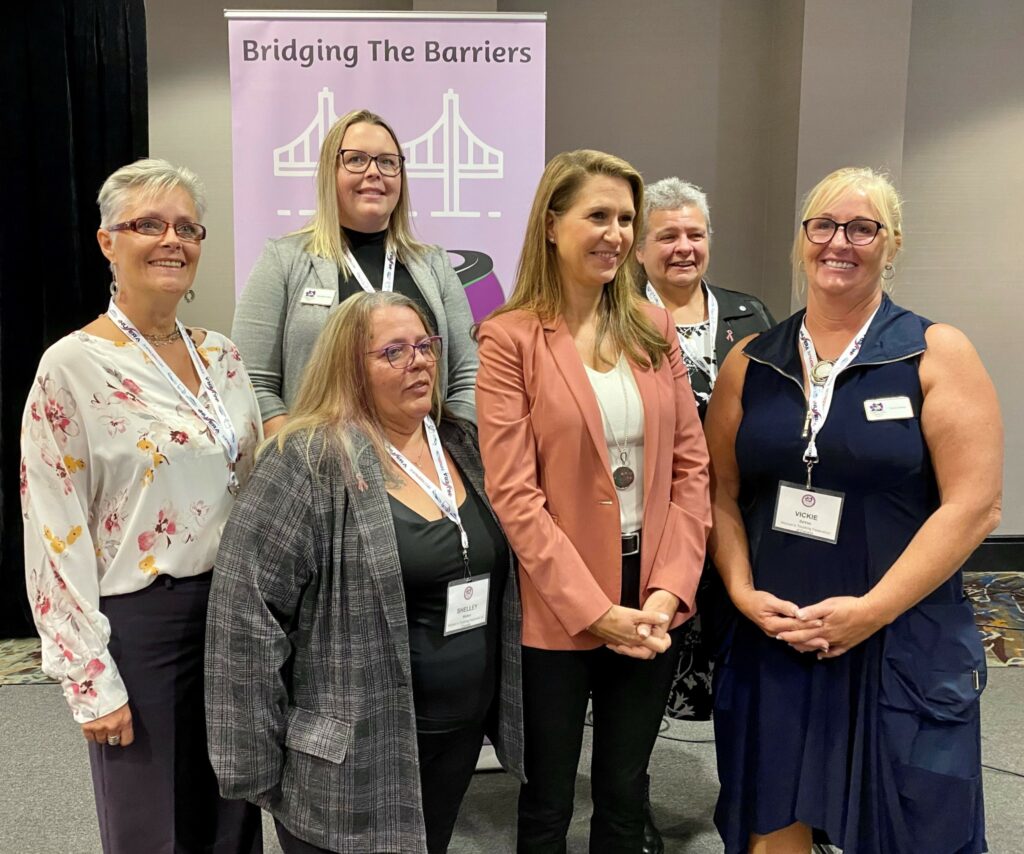Role models, inclusivity attract women to industry
Women thrive in an environment where they are valued for the ideas they share and feel safe to speak their minds. Quotas are great, but equity is about action, starting from the ground level up to the C-suite, speakers at the Women’s Trucking Federation of Canada’s Bridging The Barriers event emphasized.
Authenticity is a superpower that builds the courage muscle, said keynote speaker Samra Zafar – an author, mental health advocate and abuse survivor. She urged the trucking industry to create an environment of belonging.

Women, people of color, Indigenous people and members of the LGBTQ community should not feel like a diversity token or a box that has been checked. Samra said this begins with a company’s leader who actively listens.
Leadership is not about job titles and hierarchy, it is about leading change by speaking out and letting others thrive, and sometimes by speaking less and getting out of the way, she added.
Trucking is a male-dominated industry and policies must be in place beforehand if an organization wants to shift the culture away from an “old boys club”, panelists said during a discussion at the event in Mississauga, Ont.
Pamela Bragg, owner and managing partner of Sarkany Management, said a workplace must be readied with polices against violence and bullying, should foster respect, and not tolerate abusive behavior, before it undertakes a culture shift.
It is important to understand the people you work with, celebrate their holidays and diversity, added Jackie Bellerose, executive vice-president, people services at Wallace & Carey.
Ken Adams, chairman of the board at the Truck Training Schools Association of Ontario stressed the importance of education and enforcement to bring about change and prevent the stereotypes of discrimination. Learning about different cultures and why people do the things they do, helps in bridging barriers.

Bragg added that if a person in management allows discrimination, nothing will change. Employees must be held accountable for their words and actions.
Women feel more comfortable at a workplace if there are other women working there. Role models are needed to attract young women to a meaningful career in the industry – as drivers, in shops, sales and dispatch.
Bellerose said showcasing the industry to girls at high schools and colleges helps raise awareness. When people think about trucking, they focus on longhaul drivers, but non-traditional driving jobs can also be highlighted.
There is a need to educate the public about the different types of jobs that are up for grabs, Adams said. Also, the mindset must be changed that people choose to become drivers because they are not smart to do anything else. That is so far from the truth, he noted.
Have your say
This is a moderated forum. Comments will no longer be published unless they are accompanied by a first and last name and a verifiable email address. (Today's Trucking will not publish or share the email address.) Profane language and content deemed to be libelous, racist, or threatening in nature will not be published under any circumstances.